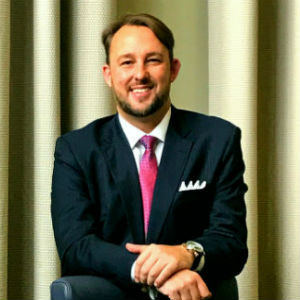
Michael Tichareva
So what is the mission of National Standard in Africa? We make a difference in the lives of people by investing in social and economic infrastructure to re-brand Africa and ultimately improving the standards of living of millions of families and residents. We are game changers. Our investments must be Impact Investments, not just make a return, and risk properly structured and mitigated as sophisticated institutional investors.
Not that simple unfortunately. Where does most of Africa go wrong that has prevented the continent from fulfilling its needs and objectives? African economies have experienced engineers, town planners, project managers, and many other professionals who contribute to the development of these complex assets. Why then is the development of these assets so slow particularly in Africa? Are the problems at the design stage, at the financing stage, at the construction stage or at the operation and maintenance stage?
There is no simple answer as there are many factors militating against development. The answer, in part, is in providing an end to end risk management solution to ensure risk mitigated investments. This means integrating all the different elements of a project, including the financing aspect, from day one. The Western World applies the same principles to any project, government or private sector, seeking financing, so Africa must learn and follow because it is prudent economic management. Ultimately, the project must be bankable, which means that investors must want to put their money without the fear of losing it. The investors ultimately are typically the ordinary man, our brothers and sisters, on the street who have invested their hard earned pensions and insurance premiums. All of us from banks, including the large international banks and investment banks facilitating these transactions, to large asset managers and large insurance companies that hold this money are usually just agents or facilitators in one form or another .
Lack of funding has delayed almost every project that we have come across. African governments are currently estimated to be in need of US $650 Billion in new financing. If the investor cannot put their money in the project due to fear of loss (risk), it means nothing happens no matter the brilliance of the project design and concept. Any project that is designed without consideration of the funding implications is doomed to fail. The first question to ask in project design then is who is going to fund this and what are their requirements? Everything else you do must then centre on making the investor or lender happy. This means every professional involved must understand that everything they do affects funding and the costs of funding. Ultimately, the investor is the one you are asking to take the risk and to trust you. It’s not the investor’s responsibility or position to convince the client to let them invest, but the project owner must convince the investor. Keep in mind most investors receive hundreds of new projects seeking funding each month so the investors have many options to invest their money. For example, when investors or lenders are considering funding a project in Africa, they are also comparing that against other available investments in Europe, the United States and Asia so you, as the client, are technically competing with other projects all over the world, not just in Africa.

Russell Duke
So how do we ensure low risk investments and still achieve acceptable returns? National Standard Finance, LLC has been in the game long enough to understand the dynamics. Our funding models centre on understanding the lifecycle of a project from end to end, and designing funding solutions that are meant to meet the particular needs of each project, whilst protecting the money invested. We do not compromise on that. Our funding is low risk funding, but it is flexible and innovative, and very long term, up to 30 years, whereas virtually all African bonds or lenders will only provide loans for up to 10 years, which is a huge disadvantage for infrastructure projects and can stress project cash flows to failure.
Traditional project finance principles should not be ignored, as they are the starting point in risk management to create a bankable project. However, whatever you do in project finance, you cannot eliminate the risk completely and this type of financing normally requires substantial cash equity which many sponsors simply do not have to invest. Our funding, therefore, calls for various types of security and guarantees to share the risk with the beneficiaries of the project, whilst providing 100% funding. People often think that it should be the investor who should take the risk. They often tell us, “but you are not taking any risk, so we do not need you”. And their projects then remain unfunded for long periods of time. If the client, or anyone else, is not willing to share in the risk should the project fail, but seeks all of the profit and upside should the project be successful, then why would a lender or investor want to assume this risk?
Our thinking is slightly different and revolutionary. We believe that it should be the beneficiaries of the projects that must take all the risk. Beneficiaries in this case are Governments of the destination country of the project and the supplier country of the project material. We simply bring the liquidity as funders and we are often in the middle. Governments, contractors and countries of manufacturing companies whose goods are used in the construction of these assets must take the risk. Ultimately, the people of the destination country of the project stand to benefit from the project as their lives are improved, and the people from the country that manufactures the material used in the project also tend to benefit economically as their economies boom. The Governments represent the people, so they must take all the risk and they must provide a safe and conducive investment climate with clearly defined rules with certainty within which to operate. They must fight bureaucracy. In Africa, Botswana is a perfect role model and Nigeria’s peaceful leadership transition is an exceptional example given its past.
Failure to understand these simple principles has led to many backlogs of infrastructure development in Africa. Many investors are simply not willing to take on the risks. They want the Governments or the multilateral organisations to which the Governments are members, to bear the risk. If a Government provides guarantees to all their projects, the political risk is usually almost eliminated for the investor, as the implications of a reckless Government where guarantees are outstanding are far reaching. There is incentive to manage the economy optimally. The interests are aligned. In the absence of Government guarantees, projects have stalled, as investors refuse to take the risks associated with careless Governments.
If we look around the World, modern cities such as Dubai and Singapore accelerated their development because the Governments took risks. In South Africa, building of the iconic Gautrain and the stadiums in preparation for the 2010 Soccer World Cup were a huge success because the Government took the risks. With Government guarantees and support, the money is always found. Back in Nigeria, Africa’s largest oil producing nation, in the absence of Government Guarantees to encourage investment in refineries by the private sector, fuel shortages are a common feature with very few refineries to produce sufficient fuel for domestic consumption and export. The newly elected Government certainly has its work cut out and National Standard is prepared to work with it in structuring optimal funding solutions for infrastructure investment.
Elsewhere in the World where infrastructure development has accelerated, it is largely due to Governments taking the risk. The investor has little to worry about as the risks are well managed and the interests are aligned. Our aim at National Standard Finance, as a strategic player in global infrastructure markets and sovereign based investing, is to play our part and move African Governments more towards this thinking and accessing large amounts of capital from North America that Africa currently does not have access to. Our objective is to partner with Nigeria and other African governments to jointly develop Africa’s economies and resources through infrastructure so that Africa may benefit for generations to come as a Developed Market rather than Frontier or Emerging Market. It all starts with fundamentals = Infrastructure.
National Standard’s Africa operations are managed out of Johannesburg, South Africa by Michael Tichareva, Principal and Managing Director of National Standard Finance Africa and Kajiya Kantumoya, Director of Investments for Africa.
Russell Duke is Chairman & Managing Principal at National Standard Finance, LLC. Mr. Duke can be reached at RDuke@NatStandard.com.
Michael Tichareva is Managing Director & Principal of Africa operations at National Standard Finance, LLC. Mr. Tichareva can be reached at MTichareva@NatStandard.com.
The website can be accessed here: www.NatStandard.com
